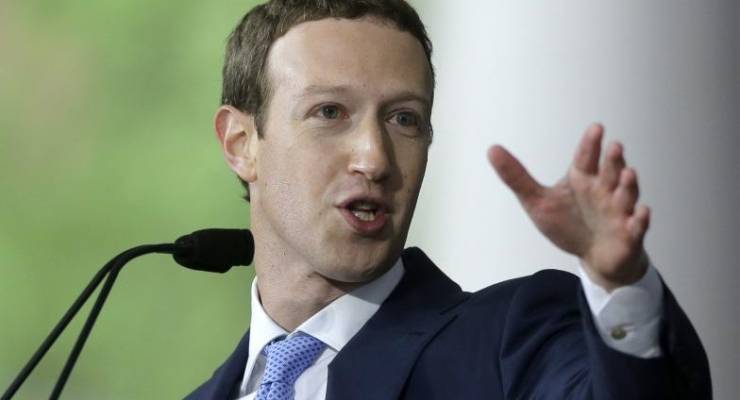
Responses to Mark Zuckerberg’s high-profile pivot to privacy last week have alternated between the astounded and the derisory equivalent of the eye-roll emoji: “Yeah, right”.
Put me in the WTAF camp. This marks a key point in the transition of social networking from social media to social communications, and an attempt by Facebook as a company to break out of the relatively narrow confines of advertising and into the larger, more lucrative field of clipping revenues on transactions.
Advertising is great for building revenues at media scale. Transactions, however, let you build revenues at the scale of banks.
In his Facebook blog post, grandly titled “A Privacy-Focused Vision for Social Networking”, Facebook CEO Zuckerberg says the company is building (or re-building) a “privacy-focused platform” based on a range of principles including private interactions, encryption and reduced permanence of messages.
The post comes as social media networks in general — and Facebook in particular — hit a tipping point: a combination of scale, age, competition and baggage means that the company is becoming used more as a utility and less as a personal publishing platform (less “Status as a Service” as former Oculus head Eugene Wei wrote last week in his must-read post on social networks and people as “status-seeking monkeys”).
The utility of Facebook lies in the company’s two messaging facilities — Messenger and WhatsApp. These, Zuckerberg says, will be the main ways people communicate on the Facebook network: more the intimacy of the lounge room, less of the publicity of the town square.
This means when Facebook talks about privacy, they don’t mean privacy from the social network. It means privacy within the network; the ability to communicate one-on-one or one-on-few, privately and securely enough to spend money through it.
The problem is that even people who tolerate ads in the town square of Facebook’s News Feed (apparently, a diminishing group), won’t cop them in the living room of WhatsApp.
The only way to make significant money out of free messaging services is to encourage their use for transactions so you can clip the ticket on the way through. One of the many sub-texts read into Zuckerberg’s post is that Messenger and WhatsApp will be merged (“interoperability” in the company’s jargon) and encrypted end-to-end so that they can be turned into America’s (and Australia’s) version of the highly successful Chinese WeChat.
This builds on reports that Facebook is developing its own global crypto-currency to facilitate transactions on its messaging platforms.
What will this mean for the much hated (by media companies) News Feed?
The company’s unlikely to abandon its advertising-based model. This delivers about 98.6% of the company’s $50 billion-odd in annual revenues. However, as advertising-supported media has often found, the company is wedged between the promise to its advertisers and the wants and needs of its consumers. The very moment that has provided proof of concept of the power of its messaging — fake news and the election of Trump — has appalled many of its users.
That wedge explains why Facebook’s revenues are up while users in the developed world appear to be down: advertisers are rushing on to the platform to get themselves some of that Facebook magic, even as users — particularly under-35s — drift away.
The company tried to deal with this wedge by “tweaking” its algorithm in mid-2017 and again in January 2018, to focus on family and friends with less of that disturbing “news” in the News Feed. News organisations that had built their distribution on the News Feed found themselves stranded. Facebook’s Journalism Project (with $5 million announced last month for Australian media) was, in part, an attempt to square off these complaints.
As Facebook seeks to exploit the utility of its messaging apps, will the News Feed also transition to utility in place of look-at-me posts? In an everything-old-is-new-again moment, this could re-open an opportunity for news in the News Feed, perhaps algorithmically shaped to prioritise the local news that Facebook’s Journalism Project is seeking to promote.








If Stalkbook, Google etc were genuinely interested in privacy (and Zuckerberg once said that privacy was dead, did he not?) they would be investing in several global projects to create authentic individual data sovereignty. That would not ruin their advertising scam, but it would essentially restrict them to meta data on traffic. Cloud storage of actual data is the root of much evil on the internet. Individual data sovereignty and secure individual identity must be the solution, at least until the crooks come up with a way to compromise particular individual data stored securely in billions of location, not conveniently aggregated in massive ‘clouds’.
Great point BA. Thanks for a good analysis Christopher Warren.
Cryptocurrency will probably have its day in the sun, one day, despite the birthing pains of the last ten years. Who knows? Bitcoin has enough design features to make controlling it completely a difficult proposition.
The best investment in the market right now would be to short Facebook over say 5 years, cheaply. I think they will go the way of MySpace, 4chan etc.
There is no ostensible reason for Facebook to exist. Reality will catch up.
The value of Farcebok >>> 2 BEEELION verified users around the world with DoB’s and contact details.
Thats one helluva customer base and mailing list vis : CrystalMeth for advertisers
PonceBook has seen the future and it looks like CCP-Chat errr WeChat, grinding it’s heel into the face of humanity.
I tried to grasp this piece but, although most of the words were recognisable as English I have no idea what it was about.
Thank dog farcebuch is beyond my kenneth.